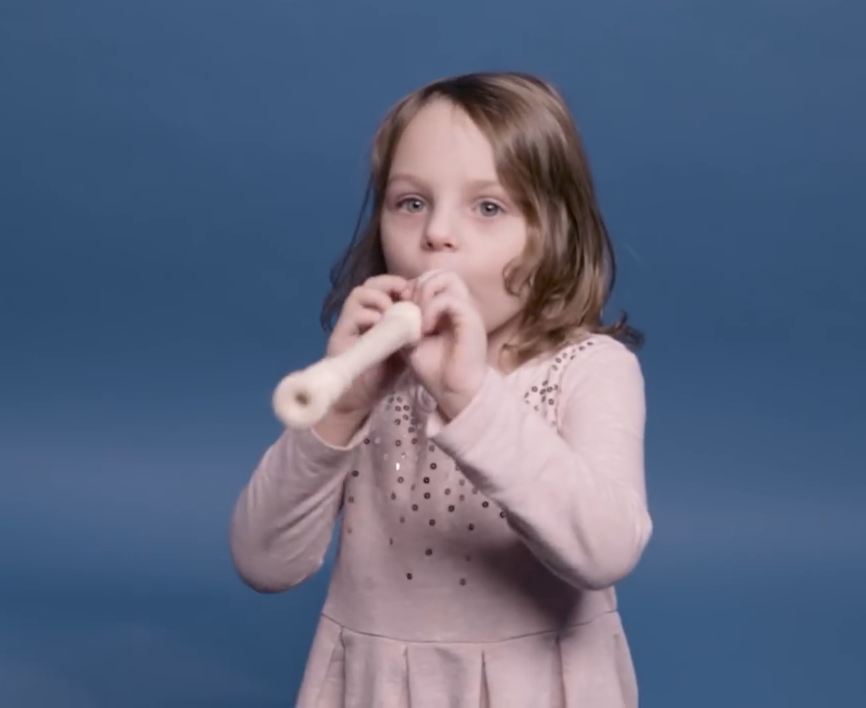(单词翻译:单击)
It's plastic; it's most likely beige; and it sounds like this:
塑料材质,颜色大多为米白色,吹出来的声音是这样:
Chances are if you grew up in the United States you've played a recorder.
如果你是在美国长大的,那你很可能吹过竖笛。
It was a non-negotiable part of your elementary school education,
它是小学教育的必修课程之一,
and for that, you can thank this guy, Carl Orff, a passionate German composer.
这一点得归功于这个家伙,卡尔·奥尔夫,一位满腔热血的德国作曲家。
Originally, the recorder was hand-crafted, wooden, and made for the highest of society.
最初,竖笛是手工制作的,而且是专为上流社会制作的木管乐器。
Even Vivaldi and Bach wrote pieces for the recorder.
连维瓦尔第和巴赫都写过竖笛乐曲。
It doesn't rely on a reed or strings, just breath.
这种乐器既没有簧片,也没有琴弦,完全靠气息实现音调变化。
It's in the flute family.
竖笛是一种笛子。
In the 1960s, the recorder started being produced out of plastic — cheap plastic.
到了二十世纪六十年代,开始出现塑料质地的竖笛——塑料便宜。
So, how did it become the clumsy, awkward sound, we all used to play?
然而,竖笛怎么就变成了经常被我们吹得既笨拙、又尴尬的乐器的呢?
That's where Orff comes in.
这还是跟奥尔夫有关。
He saw the recorder as an easy way to get kids to start playing music.
他发现,让孩子们学习音乐时,让他们先学竖笛会比较容易。
The logic was simple.
原因很简单。
The recorder relies on rhythm rather than memorization.
竖笛讲究的是节奏而不是记忆。
If you can sing, you most likely can play it.
如果你会唱歌,那你很有可能也会吹竖笛。
Orff had the best of intentions to inspire the next generation of musicians,
奥尔夫一心想培养出一代懂音乐的人,
and even though they can sometimes be annoying, our hats are off to you, sir,
虽然这些熊孩子有时候有点儿扰民,我们还是要向您致敬,奥尔夫先生,
for changing the course of music education for generations to come.
因为您改变了未来好几代人的音乐教育。


